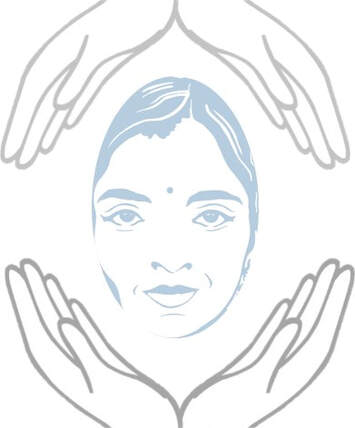|
When I met her the first time, she was on a wheelchair, in severe pain and was being treated for pancreatic cancer for nearly three years. Her husband, her primary caregiver, was with her. I studied her papers and examined her. I asked her if her ascites (fluid in the abdomen) was causing her discomfort. She was willing to manage. The next contact was about 12 days later, when the husband called. She had been recommended an MRI. He asked me if it made sense to push her through yet another MRI. Then he came over to talk to me . Their two sons were abroad. Financially, they were comfortable. They lived on the fourth floor and the building had no lift. Every hospital visit meant maneuvering her down the stairs. He was willing to do that. But to do that every time? Won’t it be difficult for him to manage her at home? Dealing with at-home careI briefed him about the potential challenges of at-home care. Perhaps it was time for him to have a frank conversation with her doctor about the prognosis? One week later I got a request to visit the patient at home. The doctor had said that her treatment was now at a palliative phase. Thanks to that, the husband had a better idea of my role as a palliative care doctor. I examined the patient. It was obvious that her disease was progressing rapidly. She looked jaundiced. No, she still did not want her ascites to be drained. She looked at peace, pretty even. She had just one fear. Occasionally, when she got up, she felt as if she was about to fall. Now that I was with her, I encouraged her to try and get up. With my help, she did. She was stumbling. It was clear to me that she was wobbly. After safely putting her back in bed, I suggested several measures. She was not to be allowed to get up and walk without support. Never. And she needed a hospital bed with rail guards. His brother walked with me as I took the stairs down. He was not sure if the sons had the correct picture. I suggested he could share my number with one of them and I would be happy to brief them. He was relieved. That evening, before I could speak to the son, I got a call from the brother. The patient had had a fall. They had rushed her to the ICU in a nearby hospital. Spend time together nowWhile the immediate injury was being taken care of at the hospital, I got a call from the son in the US. I briefed him fully and answered his questions. He said he was coming to India towards the end of the month, three weeks away. If he wanted to spend some quality time with his mother, I suggested he should reach sooner. The next call I received was again from the same son but after he had reached the hospital in Pune. He had met his mother and she had recognized him, smiled at him. He was happy. A couple of days later, the husband’s brother called again. She was not doing well at all. The second son too was on his way. He too got to meet mother, but she was already on ventilator. The family had a discussion with the doctor. How long should she remain on the ventilator? The sons decided to wait until the next evening. But she did not wait. She passed away the next morning, in the ICU. If only ...A few days later, the son spoke to me. “We knew her disease was serious. She was so keen to be at home. Dad was trying to make it possible. I desperately wanted her to get comfort care, like what we get in the US. Then after all those months of suffering, she got to meet you. Thank you for asking me to come down sooner than I was planning to. I got to meet her, spend some time with her.” He was sobbing bitterly. I told him that all I did was try to make the journey smooth. For the traveler and her dear ones who were around to see her off. She was gone. But those moments together, those memories would stay. When it comes to a terminal condition, is it possible to prognosticate the end with any certainty? Would the ending have been less painful for all, had there been franker conversations sooner? Could they have then made better use of the time with her? Dr Priyadarshini Kulkarni, Palliative Medicine Consultant, Pune. Founder, EaseandSupport ALREADY PUBLISHED IN THIS SERIES
6 Comments
Khurshid Bhalla
14/10/2019 04:58:13 pm
1. Many patients are known to "wait" ....for a loved one to arrive, or a wedding, etc....they wait physically, emotionally and spiritually. The very next day, they seem to slip away in peace. Any palliative centre nurses have seen this so often.
Reply
Dr Priyadarshini Kulkarni
14/10/2019 05:44:48 pm
Dear Dr Bhalla,
Reply
Pradeep Kulkarni
14/10/2019 07:28:43 pm
Excellent article. Society is not ready to accept the eventuality. Palliative care consultation should be suggested.
Reply
Rita Singh
14/10/2019 08:52:37 pm
good heart touching article. our Indian medical practitioner nd Hospital eed to be more transparent and talk to the patient openly. such cancer patients or any patient suffering from such disease where there is a very limited period of survival doctors must talk to them even the hospitals must have enough number of councillors who will visit the patient and talk to the patient it is must.
Reply
Gus Mendonca
15/10/2019 12:06:12 pm
It is so very important for humans to be comforable with the terms 'dying' and death'. Palliative care of the terminally ill patient should be undertaken with deep emathy and understanding, with caretakers moving out of their comfort zones and doiong what is best for the patient in the circumstances.
Reply
Mehul Panjuani
31/10/2019 05:52:51 pm
Thoughtful article. We should thank god for the quality time we spend with our parents because these would be the most cherished memories in the future.
Reply
Leave a Reply. |
AuthorVijayakumar Kotteri Categories
All
Archives
July 2024
|









 RSS Feed
RSS Feed

